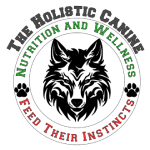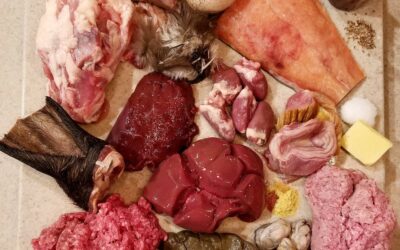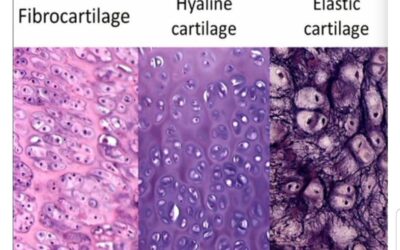Detoxification is not only NOT a myth, it is essential to health!
Several years ago, The Guardian published an article entitled “You Can’t Detox Your Body. It’s a Myth. So How Do You Get Healthy?[1]” The article, unfortunately, grossly misrepresented the physiological process of detoxification and the strategies that can be taken to improve and support the natural detox pathways. The truth is we and our dogs have a dependency on specific nurturing foods and holistic “medicinals” in order for these processes to run smoothly. Without specific foods and nutrients to support health and the body’s natural detoxification functions, toxic accumulation results and health fails as has been shown in numerous studies conducted by the Centers for Disease Control (CDC) and numerous other organizations and laboratories. It is a disservice that this misleading and slanted article caused many individuals (especially those who were already biased against natural health care strategies) to use this information in opposition to utilizing detoxification strategies as well as for many others to fall for the false notion that detoxification is a myth and a hoax.
The fact of the matter is, no matter how “clean” you may live your life and what proactive measures you take to protect your dog, nearly every human being and animal shows some evidence of toxic build-up. This is a result of the tens of thousands of chemicals found in our environment. Currently it is estimated that there are more than 85,000 chemicals surrounding our lives while a sickening 90% of these have never been tested for public safety. According to the CDC’s last national report on human exposure to environmental chemicals, over two hundred chemical compounds were measured in the blood and urine of the individuals who take part in the National Health and Nutrition Examination Survey (NHANES). According to the report, “In the majority of individuals tested, acrylamides, cotinine, trihalomethanes, bisphenol A, phthalates, chlorinated pesticides, triclosan, organophosphate pesticides, pyrethroids, heavy metals, aromatic hydrocarbons, polybrominated diphenyl ethers, benzophenone from sunblock, perfluorocarbons from non-stick coatings, and a host of polychlorinated biphenyls and solvents were found. [2]” The CDC has proven that toxins can accumulate in the body within the blood, urine, and tissues. Latest studies have shown that up to three hundred chemicals are already present in the body of newborn infants as well as in human breast milk.
What does this mean for our dogs that are walking closest to the earth and household floors, digging in soils, licking and chewing on filthy treasures they find on the ground or in the trash, and spending long hours indoors breathing polluted indoor air? And we cannot leave out the very serious concern for the majority of dogs who are consuming dried processed commercial dog food often made from 3D/4D meats, meat by-products, GMO ingredients, preservatives, and unhealthful fillers along with a cocktail of heterocyclic amines from the cooking processes, other carcinogens, molds, impurities, synthetic nutrients, and more.
Our dogs have much smaller organs through which to eliminate the same toxic exposure when compared with ours. A dog’s smaller (and sometimes tiny) organs will have to work more diligently to remove toxins. And having a much shorter life span, toxins cannot be eliminated gradually as they are in humans, thus many dogs succumb to illness and chronic disease at an early age. What is worse, our dogs cannot verbalize when they are feeling ill or when exposure to their food, tap water, lawn chemicals, cleaning supplies, veterinary preventatives and vaccines, for example, make them feel sick or cause irritation.
If your dog’s body becomes overwhelmed with the toxin load, elimination is not possible and their bodies will store the toxins until the detoxification processes are able to remove these stored toxins along with the new toxins being introduced daily. And as you can probably guess, many dogs will never have an opportunity or ability to eliminate stored toxins at a later date. Indefinite toxin accumulation is a very real and serious concern for too many dogs. Toxin accumulation creates cellular inflammation resulting in cellular abnormalities. This generally leads to growths and tumors which can end ultimately in cellular damage and cancer.
Is it, therefore, realistically possible to detoxify your dog’s body (and yours, for that matter)? You bet it is! Your dog has several pathways through which to remove toxins. These pathways are the liver, kidneys, lymphatic system, respiratory system (lungs), bowels, and even the skin if the toxin load is high. If we are to focus on the main organ responsible for detoxification it would be the liver.
The liver has more than five hundred functions which includes the body’s primary role of detoxification. To detoxify the body, the liver filters the blood, neutralizes toxins, breaks the toxins into smaller particles, and then conjugates them for removal via the bile, urine, and feces. A healthy body would have standard metabolic waste from normal cellular function, old red blood cells and unhealthy or damaged cells, and microorganism such as bacteria, viruses, fungi, and parasites that would be easily removed via the liver’s detoxification processes. However, in a world abundant in toxic chemicals, many of which are lethal, the liver of the modern canine (and human) now has to perform far more detoxification work to prevent the body from succumbing to damage from chemical exposure. Your dog has not only the above metabolic waste to contend with, but also an environment abundant in poisons and chemicals, heavy metals, toxins in the water supply, all xenobiotic chemicals, pharmaceuticals, veterinary preventative chemicals and vaccines, polluted indoor air, and the list goes on.
Since the CDC and many other research studies have already proven that toxins accumulate in the body tissues, then we can easily conclude that the liver is not capable of detoxing without a consistent nutrient-dense species-appropriate diet along with additional support from foods and supplements; foods and supplements that have been proven to help remove toxins from the body tissues.
To put it bluntly, your dog’s liver and remaining body systems cannot function to their full potential if, firstly, excessive toxin exposure is not halted immediately, and secondly, if an abundance of required nutrients and building blocks along with specifically chosen foods and supplements are not provided daily. If your dog is getting “just enough” nutrients, especially from an already poor diet, his/her liver will never be able to adequately remove the hundreds, if not thousands, of chemicals they are exposed to daily. Disease will be the end result. What does the liver require on a daily basis?
The liver has a two phase detoxification process. After filtering the blood to remove the larger toxins, what follows is two phases that break down, neutralize, and eliminate the chemicals. Phase one is an oxidation process while phase two is conjugation. In phase one, the liver alters the toxins to form activated intermediates. The activated intermediates then enter into phase two where they are neutralized and converted into safer chemicals through oxidation, reduction, and hydrolysis reactions. Phase one requires B vitamins (especially methylfolate), vitamins A, C, and E, glutathione, phospholipids, and specific amino acids. The second phase requires amino acids, sulfur, B vitamins, choline, fatty oils from fish, glutathione, and limonene. If your dog has a lack of any of these nutrients, liver function will not be optimal. If liver function is not optimal, toxins cannot be converted and removed, thus toxins will be deposited into the fatty areas of the body. When this occurs, your dog has become toxic and symptoms will manifest. One of the first and most overlooked signs of toxin accumulation is sluggishness and weight gain with the inability to lose body fat.
What can be done to support liver function? Simply put, a carefully planned out and implemented detoxification strategy that is followed and carried out on a regular basis. The number of studies that have conclusively shown that certain foods and supplements aid liver and tissue detoxification are in the hundreds. To believe that specifically chosen foods and supplements cannot assist in detoxifying the body is to deliberately turn a blind eye to the myriad of studies proving otherwise. Just as you cannot build a house without the specific and correct building materials required to construct a strong and solid building, nor can you maintain the integrity and beauty of that house in the years to come without the essential needed materials, you also cannot create and cultivate optimal health without the specific and specialized materials needed for each and every function of the body right down to each cellular organelle.
Because detoxification is so specific to each dog’s needs, history, and current health condition, I highly recommend contacting The Holistic Canine for a custom detoxification strategy plan.
In closure, I have included a mere two foods/supplements that will show without a shadow of a doubt that specific foods and supplements do offer tremendous detoxification support and assistance. Enjoy!
Example #1: Cyanobacteria/Spirulina:
https://www.ncbi.nlm.nih.gov/pubmed/17294329
https://www.ncbi.nlm.nih.gov/pubmed/18158240
https://www.ncbi.nlm.nih.gov/pubmed/23578649
https://www.ncbi.nlm.nih.gov/pubmed/20046167
https://www.ncbi.nlm.nih.gov/pubmed/22504531
https://www.ncbi.nlm.nih.gov/pubmed/23555627
Example #2: Milk Thistle/Silymarin:
https://www.ncbi.nlm.nih.gov/pubmed/20564545 https://www.ncbi.nlm.nih.gov/pubmed/21466434
https://www.ncbi.nlm.nih.gov/pubmed/24672644 https://www.ncbi.nlm.nih.gov/pubmed/31727359
©2019 Kimberly Lloyd, PhD, BCHHP, Cert Raw Dog Food Nutritionist
[1] https://www.theguardian.com/lifeandstyle/2014/dec/05/detox-myth-health-diet-science-ignorance



